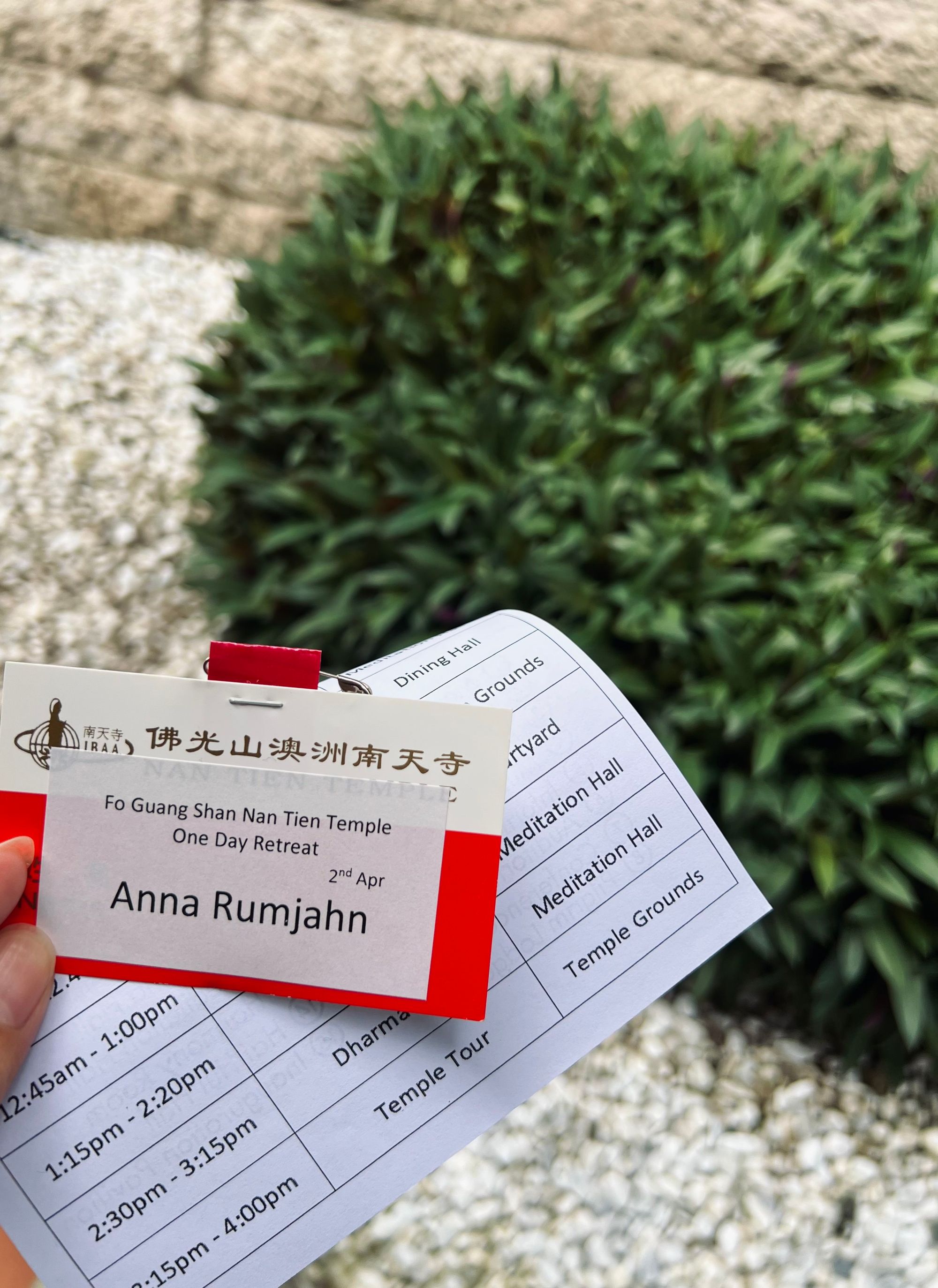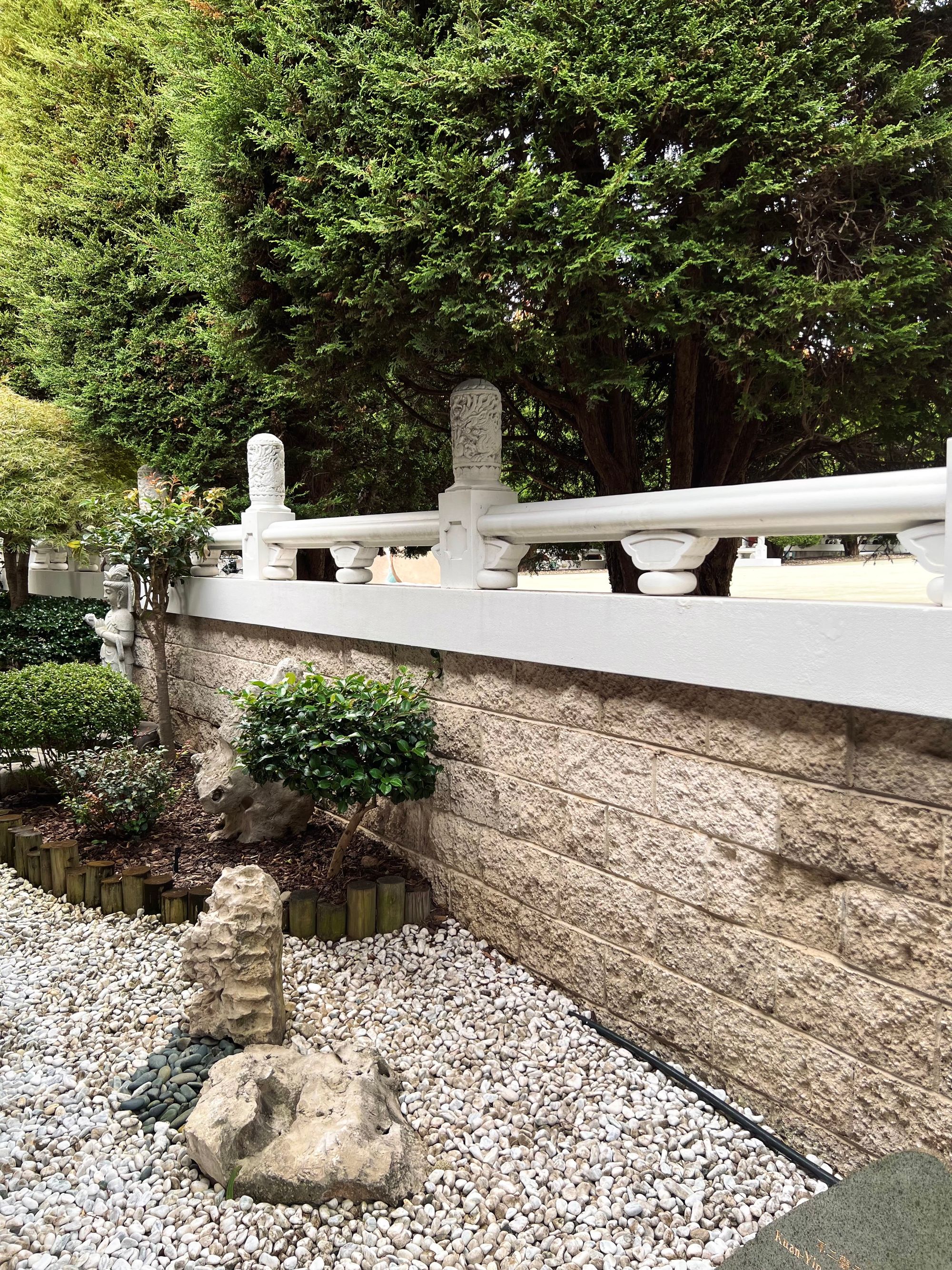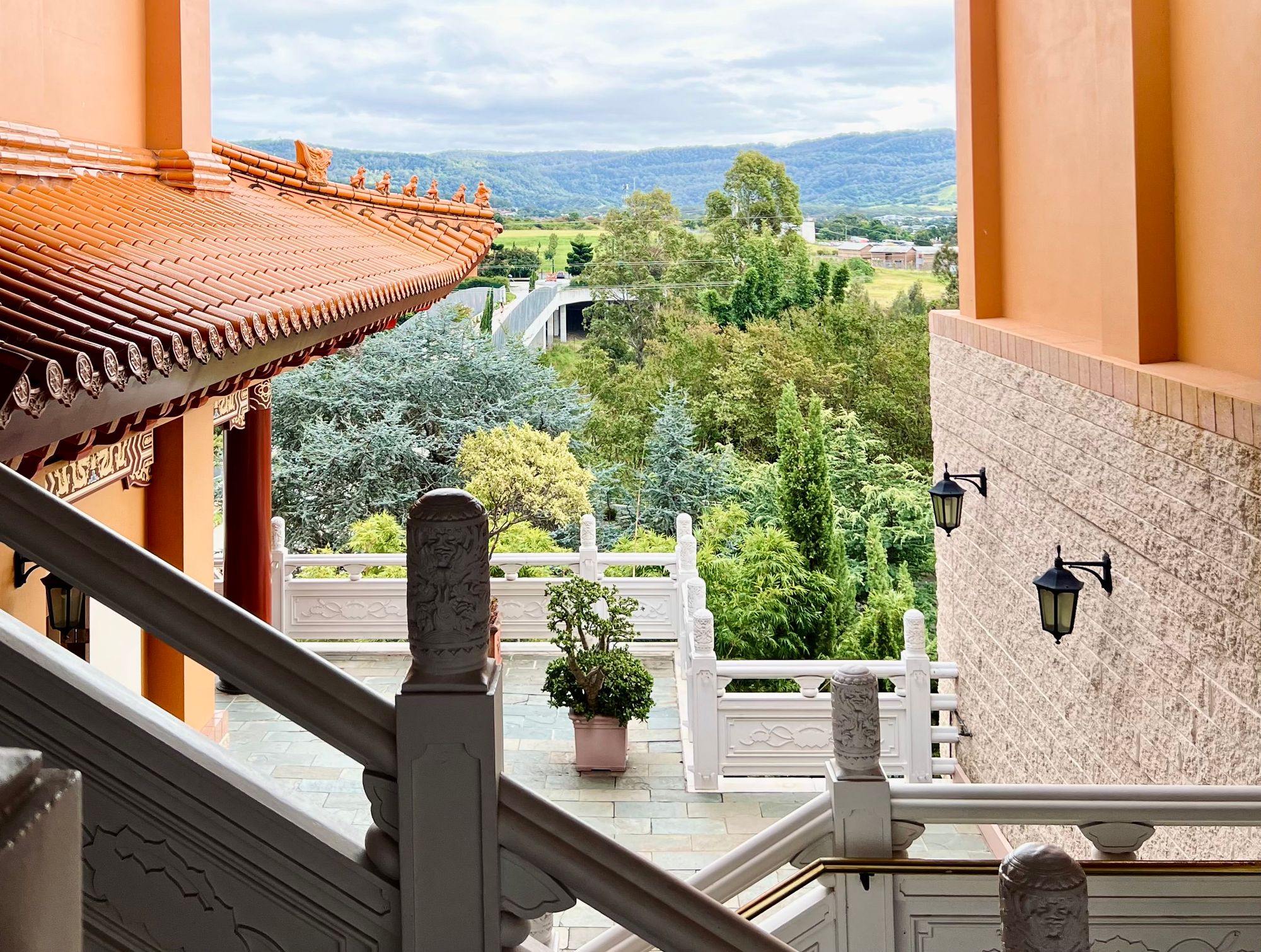Meditation Retreat: A Teacher's Experience
Ever wondered what it's like to go on a Meditation Retreat? In this article, I share my experiences of attending one on Sydney's beautiful south coast.

A couple of weekends ago, I was fortunate enough to get the opportunity to experience a one-day meditation retreat at Nan Tien Temple in Wollongong, New South Wales. This had been on my bucket list for some time and due to the ongoing pandemic, it had been delayed a few times. Needless to say, the anticipation had been building up for a while now.
Nan Tien Temple is a Buddhist temple which practices Fo Guang Shan. From their website, they state that ‘Fo Guang Buddhism is rooted in the Mahayana tradition which emphasises that Buddhahood is within everyone's potential reach. Fo Guang followers strive to bring Buddhism into daily life and aptly term their faith "Humanistic Buddhism”’ (Nan Tien, 2022, para. 2). Here, they offer a variety of retreats for the wider community, which suit a diverse range of interests and experiences. Anyone is welcome to participate and learn from the Buddhist teachings or practices in order to cultivate a more tranquil sense of self.
The One Day Retreat is offered multiple times a year on Saturdays. During the day, I was able to engage in sitting meditation, eating mediation, walking meditation and Tai Chi. By undergoing various types of meditation, it deepened my self-awareness in every present moment. This was also accompanied by observing noble silence for the whole duration of the retreat. Being more of an introvert, I found this to be quite easy to accomplish, but the silence allowed me to focus on listening, learning and absorbing the value that my monastic teacher, Venerable Zhi Li would be able to add to my life.

Located in the quiet semi-rural town of Berkeley, 1.5 hours outside of Sydney, the exquisite temple grounds offered sweeping views of the mountains and countryside. Being in the monastery meant that I was in an environment conducive to gaining an inner peacefulness. In the morning session, we were taught how to properly adjust our posture and breath for sitting mediation, following the traditional Buddhist practice, as opposed to what we commonly see in Western society, known as ‘secular mindfulness’. This detachment is thoroughly explored in Low’s (2021) research on mindfulness and teaching, demonstrating that ‘the dominant discourses of global knowledge production… tend to give more weight to some types of knowledge’ (p. 124). The mindfulness that we often see in neoliberal, capitalist societies are characterised by ‘reductionism and commodification – popularly labelled “McMindfulness”’ (Hyland, 2016, p. 97). Without a clear understanding of the origins of mindfulness, it ‘can engender confusion when teachers seek to apply it in education’ (Rumjahn, 2022, p. 1).

During eating meditation, which I found particularly interesting and new, the monastics encouraged us to use all our senses whilst eating. From tasting the texture of the food, to listening to the cutlery as it makes contact with the plate, to seeing the vivid colours of the vegetables. From an outsider’s perspective, this is the antithesis of Western cafeteria dining savoir-faire. The silence amplified my awareness and shifted the whole perspective of eating. I could appreciate each and every mouthful, taking the time to be grateful for the multitude of people and processes that it took to create my food. I know it probably sounds bizarre, however, being able to chew, swallow and distinguish flavours is something that many of us take for granted each day. We get so caught up about taking a right photo of our food for Instagram, watching television whilst eating dinner or complaining about the tiniest inconveniences that dishes will have on our taste preferences that we forget the very essence of just being able to eat and being appreciative that.
After lunch, we participated in walking meditation and focusing on the feeling the steps with our whole body. By breaking down the simple action of walking, I was able to recognise the complexity of the human body and be aware of all the muscles involved when lifting my foot off the ground. This was followed by a tai chi session which focussed on achieving harmony of the inner and outer self by integrating the mind and body. We finished formalities of the retreat with afternoon meditation, learning how to focus on the breath. This was challenging for me as it was a longer twenty-minute meditation, and my energy levels were starting to dip. However, it allowed me to understand my body and how it changes throughout the day.

From this experience, I was able to come out the other side feeling more tranquil and gained a new appreciation for the everyday. Others around me noticed that I was visibly happier and more light-hearted immediately following the retreat. It provided me with new experiences and insights which I could implement in my everyday life. As a primary school teacher, there are so many times where I would eat my lunch whilst trying to complete other tasks or catch up with colleagues in between mouthfuls. However, being able to sit with my food and enjoy the time to digest it with all my senses calms the chaos and disquiet of the school day. Walking down the corridors to my classroom has been a practice that I have taken on as well. Feeling every footstep calms me down before I engage with my students and brings me back to the present moment. Small habits. Big changes.
I would highly recommend this one-day retreat for teachers who are feeling overwhelmed, stressed or struggling with low morale. By being able to refocus, gain a deeper understanding of oneself and limit your attention to the present moment, your perspective will change how you handle challenges in your daily work. □
References:
Hyland, T. (2016). The limits of mindfulness: Emerging issues for education. British Journal of Educational Studies, 64(1), 97–117. https://doi.org/10.1080/00071005.2015.1051946
Low, R. Y. (2021). The mind and teachers in the classroom: Exploring definitions of mindfulness. Springer Nature. https://doi.org/10.1007/978-3-030-70384-4
Nan Tien. (2022). Nan Tien Temple. Retrieved 6 March, 2022. https://www.nantien.org.au/en/about-us/nan-tien-temple
Rumjahn, A. (2022): The mind and teachers in the classroom: Exploring definitions of mindfulness, by Remy Y. S. Low, 2021, Educational Philosophy and Theory https://doi.org/10.1080/00131857.2021.2023497
If you would like to show your support, feel free to buy me a coffee! ☕
